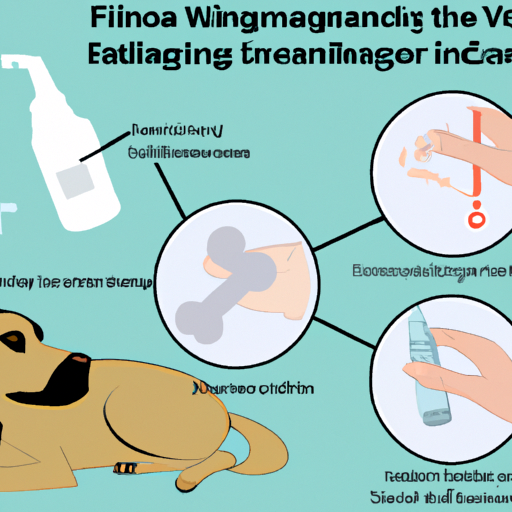Understanding Fungal Infections in Dogs
Fungal infections, often a bane of dogs and their caregivers, can cause a myriad of discomforts. Ranging from mild irritations to severe health complications, they are not to be taken lightly. It’s crucial for you, as a caregiver, to understand the nature of these infections.
Fungi are opportunistic organisms that usually live harmlessly on your dog’s skin. Problems arise when these organisms multiply uncontrollably, causing infections. They can affect various parts of the body, including the skin, ears, respiratory system, and even the bloodstream.
Symptoms of Fungal Infections
The manifestations of fungal infections can be as diverse as the fungi causing them. Here are some common symptoms you should look out for:
- Itching and redness
- Scaly or crusty skin
- Hair loss
- Unpleasant odor
- Ear discharge
These symptoms, while common, can also be indicative of other health issues. Hence, it’s vital to seek professional veterinary advice for a definitive diagnosis.
Treating Fungal Infections
Treating fungal infections in dogs often involves a multifaceted approach. This may include:
-
Topical treatments: These are applied directly to the affected area. They may come in the form of shampoos, creams, or sprays.
-
Oral medication: If the infection is severe or deep-seated, your vet may prescribe oral antifungal medication.
-
Special diet: A diet rich in essential fatty acids can help support your dog’s skin health.
Here is a brief table summarizing the treatment options:
| Treatment Type | Purpose |
|---|---|
| Topical Treatments | Applied directly to the affected area |
| Oral Medication | Used for severe or deep-seated infections |
| Special Diet | Supports skin health |
Preventing Fungal Infections
The best cure, as they say, is prevention. Here are some preventive measures you can take:
- Keep your dog clean: Regular grooming can help keep fungal spores at bay.
- Provide a healthy diet: A balanced diet can boost your dog’s immune system, making them less susceptible to infections.
- Regular vet checks: Regular veterinary check-ups can help detect any health issues early, including fungal infections.
Remember, prevention is a lifelong commitment. It’s not just about taking measures when you notice symptoms but making sure those symptoms don’t appear in the first place.
Living with a Dog with a Fungal Infection
If your dog has been diagnosed with a fungal infection, it’s important to follow the prescribed treatment regimen. With consistent and proper treatment, most fungal infections are manageable and your furry friend can lead a comfortable and happy life. Patience and understanding are key during this time.
FAQs
1. What causes fungal infections in dogs?
Fungal infections are caused by the overgrowth of fungi that naturally live on your dog’s skin.
2. Can I catch a fungal infection from my dog?
Some fungal infections can be zoonotic, meaning they can be passed from animals to humans. Always wash your hands after handling your dog.
3. How long does it take to treat a fungal infection?
The duration of the treatment can vary depending on the severity and type of infection. Always follow your vet’s advice.
4. Can fungal infections be prevented?
Yes, with regular grooming, a healthy diet, and regular vet checks, you can significantly reduce the chances of your dog contracting a fungal infection.
5. Is a fungal infection a serious health issue?
While most fungal infections can be treated, if left untreated, they can cause severe health complications. Always seek veterinary help at the first sign of infection.



